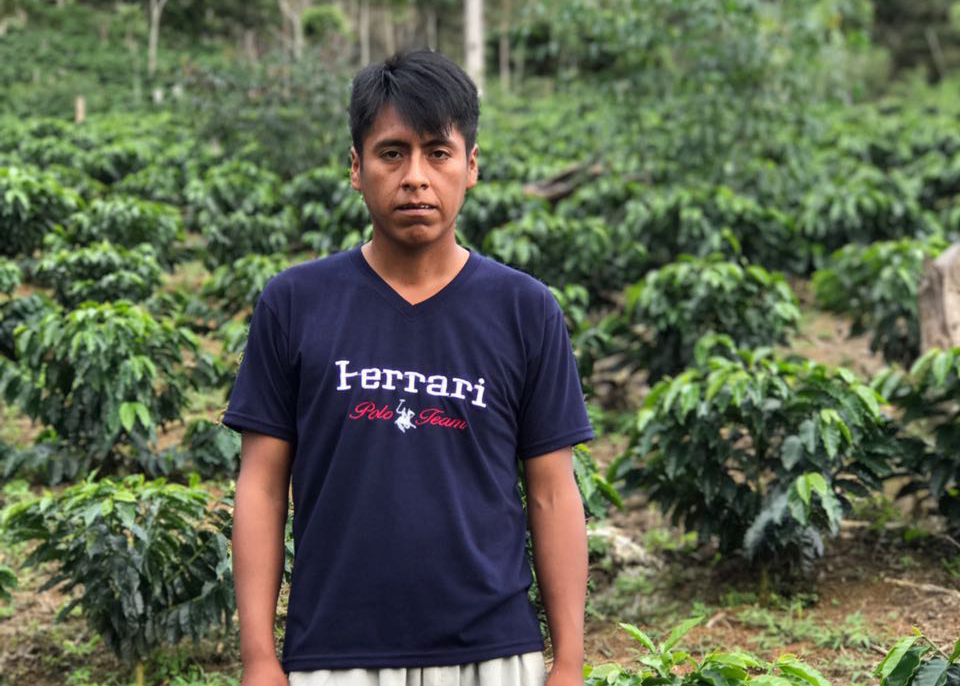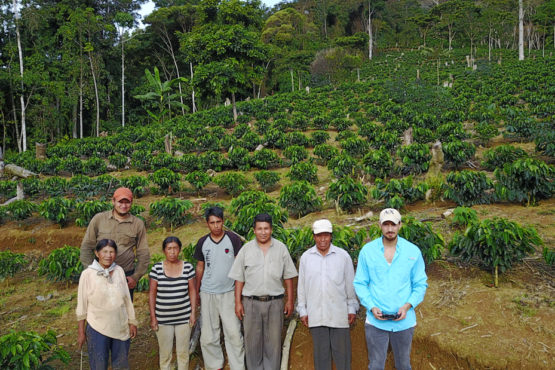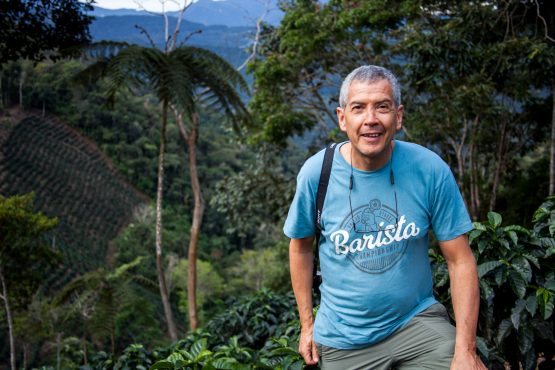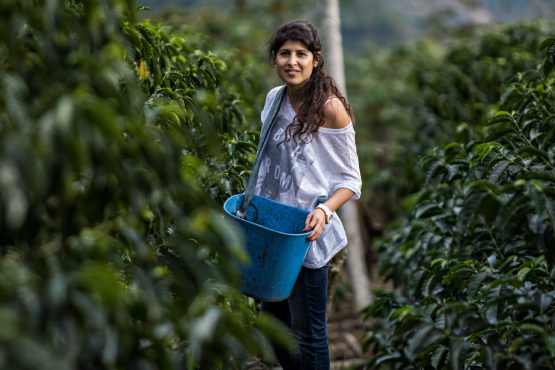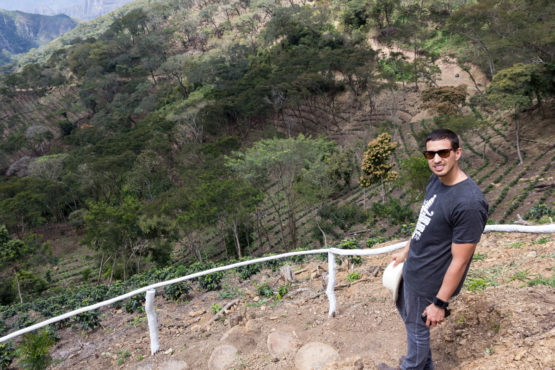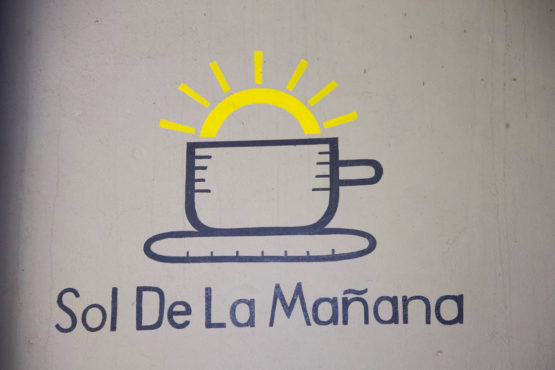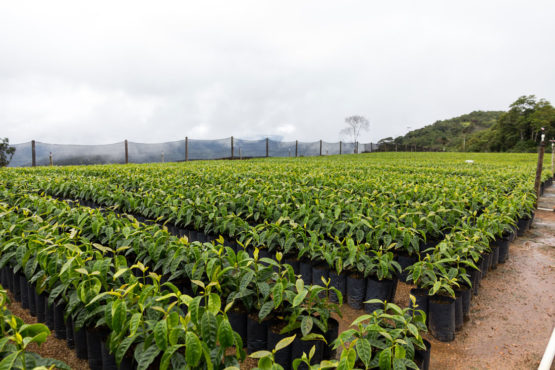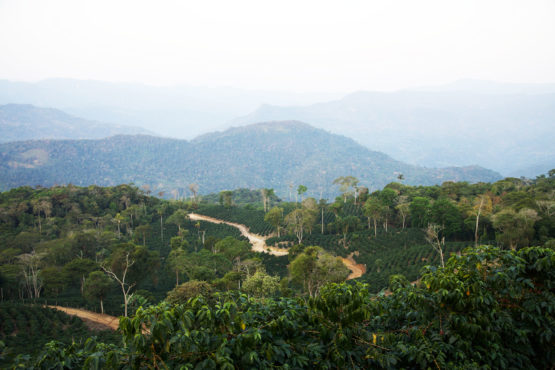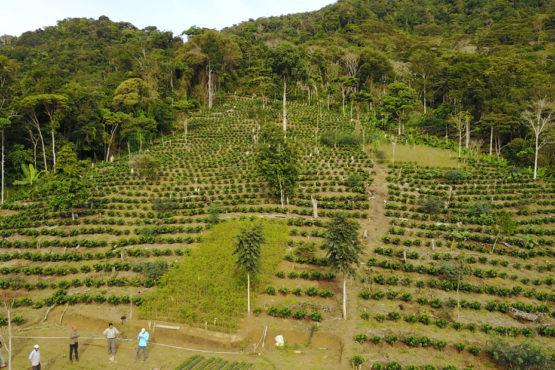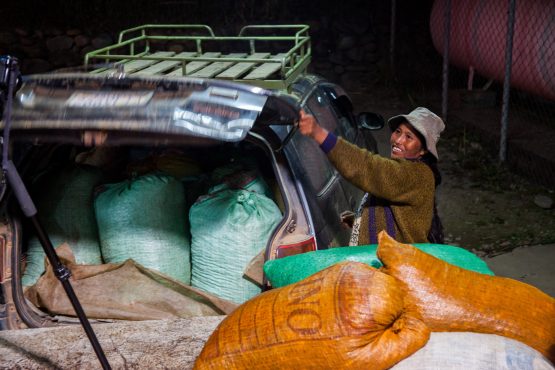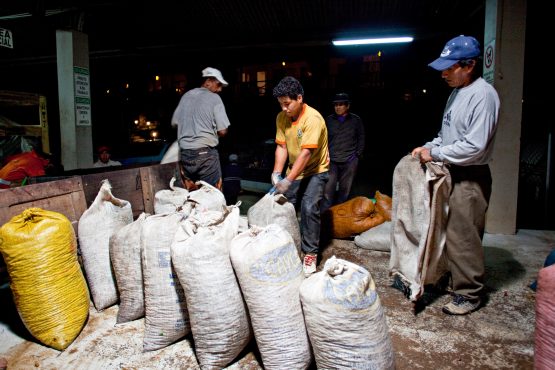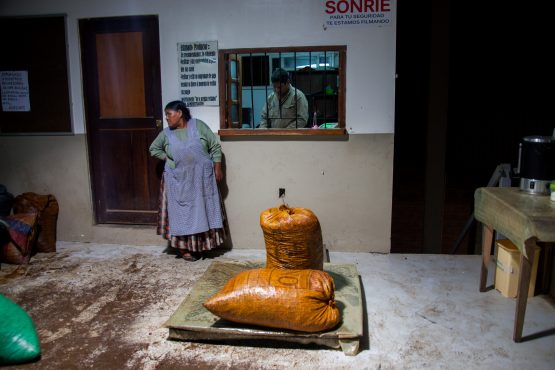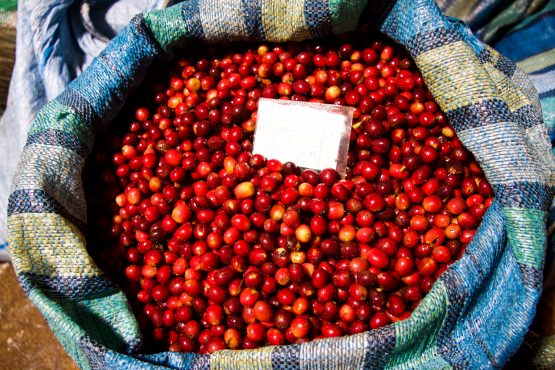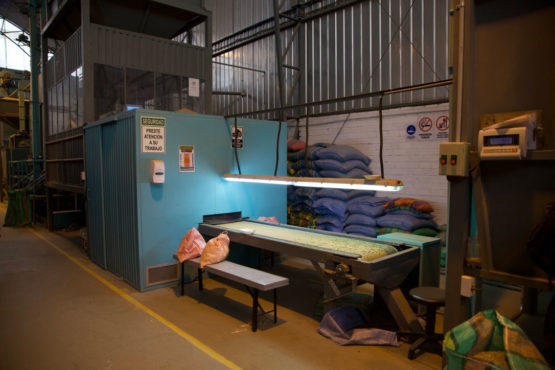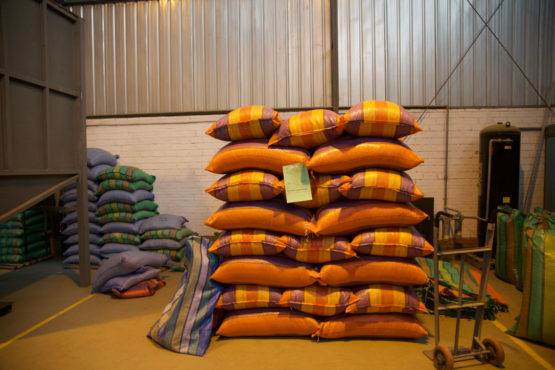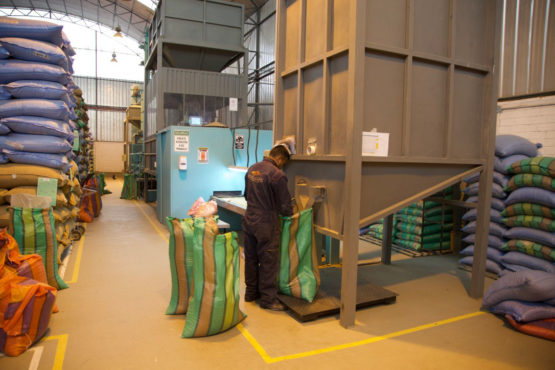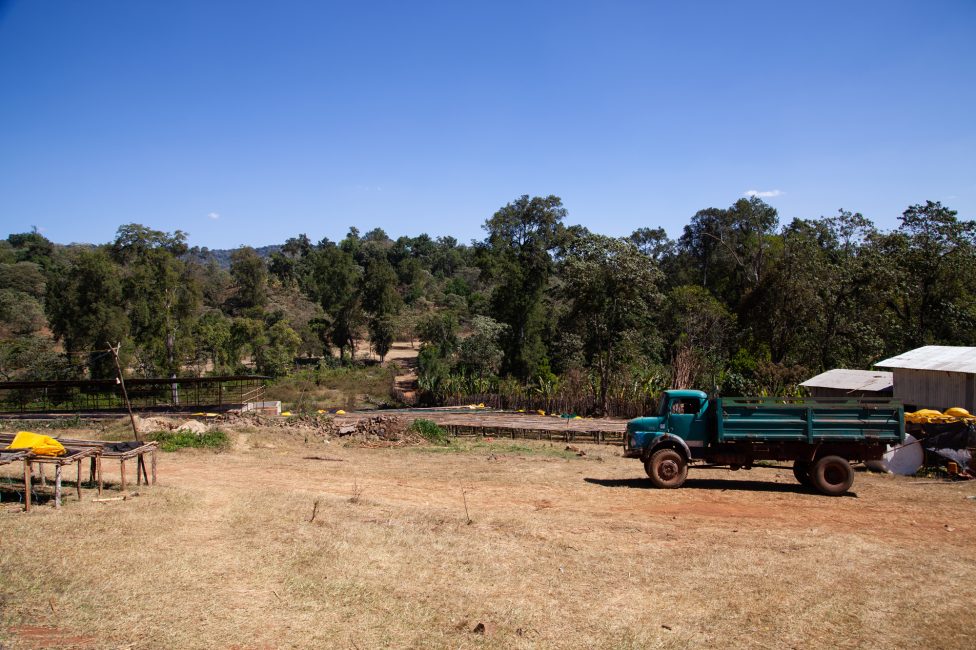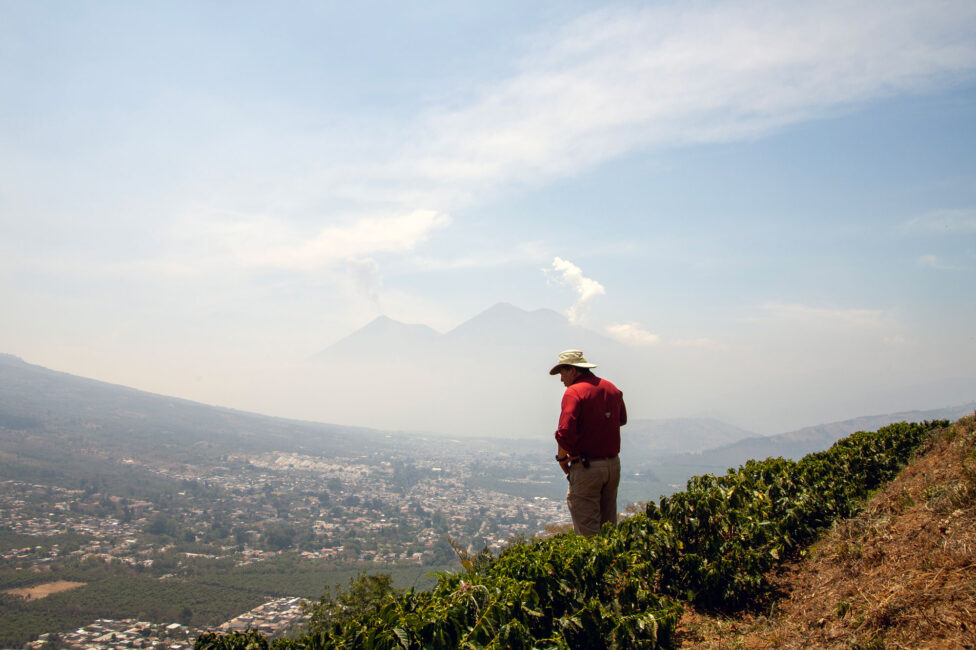Lucio Mamani
Rich, full-bodied and sweet with dried date, honey and jasmine, dark chocolate and a lingering honey finish.
This special coffee was grown by third-generation coffee farmer Lucio Mamani. His small family farm is located in the settlement of Uchumachi, 30 kilometres from Caranavi town and 162 kilometres north-east of La Paz. This is a lush, green and very fertile area. The steep slopes and valleys here provide excellent conditions for growing specialty coffee and also lets a diverse range of native flora and fauna flourish.
Lucio’s family has been working in coffee in the Yungas region for over 50 years. The family moved to the region from La Paz when Lucio was only one week old. Lucio’s grandfather decided to plant coffee on the land, and his father (and more recently Lucio and his children) followed suit.
Lucio’s farm is 13 hectares in size and grows at 1,600–1,750 metres above sea level. Around four hectares are planted with Caturra, Catuaí and Typica variety coffee trees. These grow alongside mandarins, oranges, potatoes, and apples that Lucio sells to supplement his income outside the coffee season.
At their prime, Lucio and his children (who own neighbouring farms) enjoyed many good years in coffee production and produced around 120 bags of coffee a year, which they exported to specialty buyers in the USA and Europe. Unfortunately, in 2012, their farm (like most in Bolivia) was hit by leaf rust, and they didn’t know how to combat the disease. Devastated and desperate, the family considered leaving their farm behind, but coffee was all that they knew. They persisted for a couple of years, producing low yields and planting fruit trees to supplement their income. Luckily in 2015, they were approached by the Rodriguez family of Agricafe, who invited them to participate in a producer training program called Sol de la Mañana.
ABOUT AGRICAFE
Agricafe is a Bolivian family business owned by Pedro Rodriguez and his daughter Daniela and son Pedro Pablo. The trio’s mission is to build the production of, and market for, Bolivian specialty coffee. To do this, they have invested efforts and funding across the entire specialty coffee production chain, including buying coffee from hundreds of local farmers, establishing state-of-the-art wet and dry mills, launching producer training programs, and planting new coffee farms across the regions of Caranavi and Samaipata.
Over the last decade, Agricafe has been working to try and save the Bolivian coffee industry. Despite its international recognition and highly sought after coffees, the production of coffee across Bolivia has decreased dramatically and has been at risk of completely disappearing. A combination of ageing coffee plantations, traditional and very unsophisticated farming techniques and diseases such as leaf rust have resulted in significantly reduced yields, and this, combined with the proliferation of the competing coca industry (used for cocaine), has seen coffee production more than halve.
To try to save coffee production in Bolivia and build a more sustainable future for it, the Rodriguez family started a project called Sol de la Mañana (which translates to ‘morning sun’).
ABOUT SOL DE LA MAÑANA
The first of its kind in the country, the Sol de la Mañana program is aimed at sharing knowledge and technical assistance with local coffee producers to help them renovate their farms and improve yield quantities. By doing so Agricafe hopes that coffee production can be a sustainable and financially stable crop for smallholder farmers like Lucio for many years to come.
Lucio has been part of Agricafe’s Sol de la Mañana program since its establishment in 2015. As part of the program, Lucio follows a very structured series of courses focused on improving both quality and, critically, yield at his farm. The curriculum hones in on one aspect of farming at a time and includes information on building and maintaining a coffee nursery, when to prune and use fertiliser, how to avoid and treat leaf rust, and how to selectively pick coffee. Agricafe has also helped Lucio identify which parts of his farm to renovate and repair, with a focus on long term, sustainable, and ultimately profitable farming practices.
The results of the Sol de la Mañana program have been profound, with improved quality and quantities for all participating producers, including Lucio. He is now achieving yields of 30 bags per hectare, which is a significant achievement. Prior to joining the program his yields had fallen to six bags per hectare.
HOW THIS COFFEE WAS PROCESSED
This particular lot from Lucio and his family was carefully hand-picked and processed on the same day at the Buena Vista washing station. This meticulously run mill is owned by Agricafe, who painstakingly process each of the exceptional specialty lots they receive separately to allow for full traceability back to the individual farmer or settlement.
Evenings at the mill are always bustling as arrivals of fresh cherries begin in the late afternoon after the day’s picking, and continue deep into the night. It is widely known around Caranavi that only perfectly ripe cherries will be accepted by this mill and all lots are inspected on arrival prior to processing. In an arrangement somewhat unique to this mill, many farmers use taxis to deliver coffee, and by 7 pm a long line of taxis forms along the road leading to the mill.
After being inspected and weighed, the coffee is carefully sorted by weight using water, and floaters removed.
After the coffee is pulped it is fermented without water for 17 hours. Then the coffee is dried slowly and carefully in a mechanical dryer for around 75 hours, with temperatures below 40˚C. When the coffee reaches 16% humidity it is then rested for five hours in a silo, and then carefully dried until it reaches 11.5% humidity.
Once the coffee is dry, it is then transported to La Paz where it is rested and then milled at Agricafe’s dry mill, La Luna. At this state-of-the-art mill, the coffee is meticulously hulled and sorted using machinery and also by hand, by a team of sorters who carefully check the coffee under both UV and natural light. The mill is one of the cleanest and most impressive we have seen. You can read more about it here.
WANT TO KNOW MORE?
Read about the Sol de la Mañana program here, and Pedro Rodgriguez here, and learn about Bolivian coffee more generally here.
